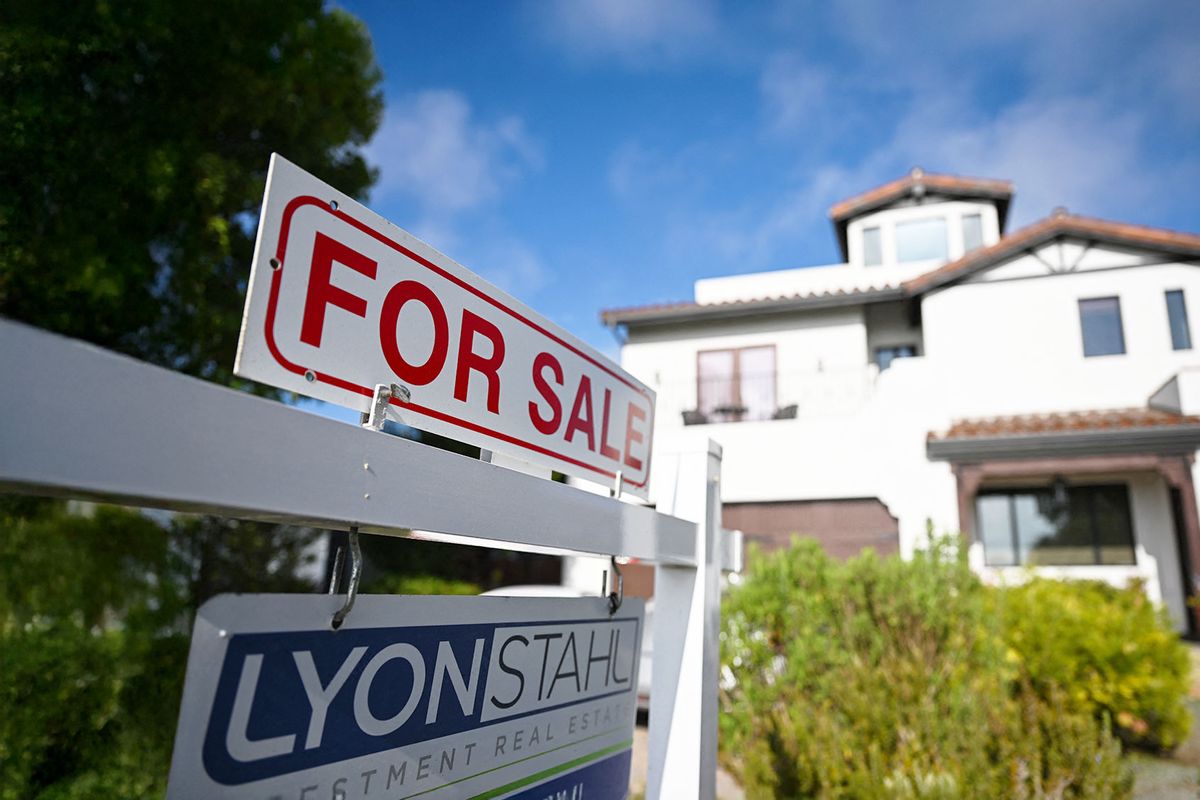


They say you can’t time the housing market, but as we are acutely aware, some times are better for buyers than others. Like now, as the market has softened, primarily because high interest rates put a monthly mortgage rate out of reach for many.
Real estate listing platform Redfin says 44% of sellers are granting concessions to buyers, and 13% of all sales in March were canceled due to jittery buyers in an uncertain economy with high interest rates.
According to Lawrence Yun, chief economist at the National Association of Realtors, inventory rose in March, homes are languishing longer on market and people are staying put. “Residential housing mobility, currently at historical lows, signals the troublesome possibility of less economic mobility for society,” he said in a statement. Still, prices stayed high. “In a stark contrast to the stock and bond markets, household wealth in residential real estate continues to reach new heights. With mortgage delinquencies at near-historical lows, the housing market is on solid footing. A small deceleration in home price gains, which was slightly below wage-growth increases in March, would be a welcome improvement for affordability.”
It may be a crazy time to buy, but home shoppers can do jiu-jitsu and use the soft market to their advantage. However, it's time to think past the paint job and cosmetic updates and ask for strategic concessions that will lower the costs of owning a home.
There may be room to ask for cosmetics concessions — such as updating the kitchen or painting the home — but those won’t return as much as the ones that save money month after month. You could even use the savings to fund those fixes. Miami-based Christina Pappas, regional vice president of NAR and president of the Keyes Co. real estate agency, says in the past few months, she’s been seeing an uptick in interest-rate buydowns to close deals. Instead of asking for a price reduction, a 2% to 4% buydown concession lowers the interest rate, which can amount to significant savings over the long haul. Buydowns can be temporary or for the life of the loan, and they typically cost 1% of the loan.
Here’s an example of how that would work on an $800,000, 30-year mortgage (without taxes and insurance included): At 6.5%, the monthly payment would be $5,056.54. If the seller buys down that interest rate to 4% at the cost of $20,000, the buyer pays $3,819.32 monthly. If the buyer instead asked for a $20,000 reduction in price instead, which would cost the seller the same amount of money, the monthly payment would be $4,930.13 — more than $1,000 difference without much help on the property tax end.
We need your help to stay independent
The second strategic concession buyers are asking for — and getting — is based on mitigating insurance costs. Pappas works in hurricane country, and “The age of the roof is one of the most important things for buyers these days,” she said. “Probably the number one request for a seller reduction to either fix the roof, replace the roof or get a monetary amount scored a credit at closing because of the roof. So anything that's going to affect the cost of insurance is a typical request from a buyer, and the easiest request after that inspection period is typically a credit at closing so that the buyer can complete it.”
This might look like fire abatement measures in wildfire-prone areas, or updating HVAC, plumbing and electrical systems, or earthquake retrofitting — which also improve home values when you’re ready to sell. For condo buyers, it’s not out of line to ask for HOA fees for a period of time. You could also get creative and ask for utility bill payments, soil and water testing, moving costs and whatever else might sweeten the deal.
"Anything that's going to affect the cost of insurance is a typical request from a buyer, and the easiest request after that inspection period is typically a credit at closing so that the buyer can complete it"
Kalonji Foreman owns Foreman Properties, a Compass-affiliated real estate business in Washington, D.C. He says asking for a straight-up price reduction can put a buyer at risk of losing a sale. “It is just as much financial as it is psychological,” he said. It can be insulting to imply a seller has priced the home incorrectly, or that it’s not worth what they think it is. “I always advise clients to go after the actual selling concession to offset your clothing costs versus going after the actual price point.”
Another thing buyers can use to their advantage is seasonal timing. In spring, more homes are on the market, more people are looking to relocate before school starts and buyers will have competition. During the winter holidays, fewer homes are available but sellers may also be more motivated if they’re trying to close a sale by the end of the year.
“They always say the best time to buy is yesterday, and the second-best is today,” Foreman said. “If they are waiting, then they can essentially be priced out of the market, because that property is going to continue to appreciate in value.”
Read more
about personal finance
